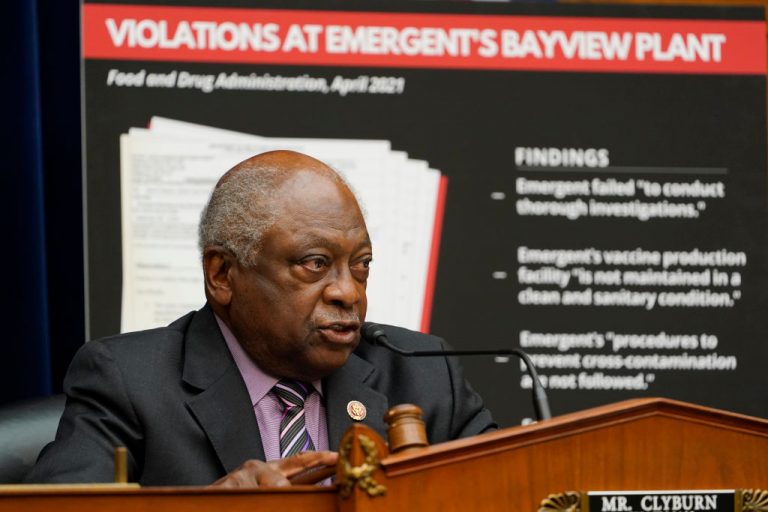Emergent BioSolutions, a Maryland-based vaccine manufacturer has announced that its multi-million dollar contract with the United States government has been canceled. In March this year, the company was accused of ruining nearly 15 million doses of the Johnson & Johnson (J&J) COVID-19 vaccine.
The contract, worth $628 million, was terminated on Nov. 1 by mutual agreement between the Department of Health and Human Services (HHS) and Emergent. In a conference call discussing its latest financial results, the company said that it would forgo roughly $180 million in profits due to the cancellation.
Emergent, a contract research and manufacturing organization (CRMO), was responsible for accelerating vaccine development and dissemination during the Donald Trump administration. But after securing a contract, the company ran into production problems.
Emergent made a mess of the manufacturing of components used in the J&J vaccine. Investigations revealed that there had been a mix-up between vaccine ingredients the company was producing for AstraZeneca and J&J.
This led the U.S. Food and Drug Administration (FDA) to halt operations at Emergent’s Baltimore plant and subsequently led to a month-long delay in the launch of the Johnson & Johnson vaccine.
Success
You are now signed up for our newsletter
Success
Check your email to complete sign up
In April this year, the FDA issued a 13-page report criticizing the Baltimore facility by stating that it was messy, too small, and not well-planned for the production of vaccines.
Investigators also found other deficiencies like damaged floors and walls, peeling paint, improper handling of trash, cramming of materials, and black residue on the floor. They noted that the staff was not adequately trained.
The Biden administration put Johnson & Johnson in charge of production at the plant. In June, the FDA decided to dispose of another 60 million doses manufactured at the site.
In an op-ed published in The Baltimore Sun, Robert Kramer, the CEO of Emergent, wrote that his company takes “full responsibility” for the mix-up between AstraZeneca and J&J vaccines. He also claimed that the company has dealt with the conditions that led to the production botch up. However, Kramer also laid some of the blame on the government.
The “original intent of the partnership was to create a facility that could produce 50 million dose-equivalents of influenza vaccine drug substance in four months in the event of a pandemic.” This required expanding facilities as well as building and maintaining a state of readiness, which necessitated continuous investment. “The government maintained that they would provide us with the necessary drug development work to build and maintain those capabilities. That didn’t happen,” he added.
The links between Emergent and Washington go back to 2012 when the company signed on with the Centers for Innovation in Advanced Development and Manufacturing (CIADM) program.
CIADM sought to ensure that America can deliver an orchestrated response to contagious diseases and other risks to public health. Kramer noted that the company’s relationship with CIADM is now over as well.
Matt Hartwig, an Emergent spokesman, told CNBC on Nov. 5 that Emergent and the federal government “mutually agreed upon final payments to close out all open task orders and end the base CIADM contract… These are mutually agreed upon terminations for convenience and neither party is alleging breach of default by the other.”
The shares of Emergent Biosolutions plummeted by more than 37 percent on Nov. 5 after the news of the federal contract being rescinded spread. The company is expected to be put under congressional investigation that will examine its operations during the pandemic.
















